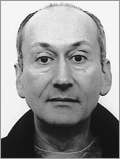197th ECS Meeting | Toronto, Canada | May 15, 2000
Freeing the Refereed Journal Literature Online Through Public Self-Archiving
Professor Stevan Harnad set the tone for the week with his provocative talk on the future of scientific refereed journals. He spoke of the current system’s “access blocks.” In the paper journal model, these blocks occur, in part, because many scientific journals are so highly priced and thus not affordable to a broad readership. In the electronic arena currently, the access is based on the paper model, and thus many of the blocks are still present.
Harnad would like to see the content of scientific journals getting through to more “minds and eyes” than the current system accomplishes. In his “Post-Gutenberg Galaxy of Scholarly Skywriting,” the ideal online resource would contain all papers in all fields, be systematically interconnected, be effortlessly (and freely) accessible, and rationally navigable. In the Gutenberg era, there was a trade-off: scholars would give their content to journal publishers in return for the costly and valued processes of physical production, marketing, and distribution. But today, Harnad argues, these “value-added” processes are no longer necessary. He advocates that authors continue to submit to the traditional journals, but to also publicly self-archive all un-refereed preprints, and all refereed reprints, for free, in all global and local online archives.
E-print servers, such as Paul Ginsparg’s Los Alamos archives (for physics) have been operating successfully for many years. New initiatives, such as PubMed Central from the National Institutes of Health (for life sciences), and the Scholar’s Forum at Caltech, are gathering support. The latest work in the area of e-print servers is the recent Santa Fe Convention, which presents a simple technical and organizational framework to support basic interoperability among e-print archives. Harnad noted that electronic scholarly journals must be perpetually archived and that a greater mass of material would force the issue to be addressed.
In response to concerns about quality, raised by members of the audience, Harnad said that the refereed aspect of scholarly journals was still very important, and that journals should raise their level of quality even higher. Another member of the audience drew the lecturer’s attention to patent considerations, a very important concern in publishing in the electrochemical and solid-state fields. Harnad spoke about “rational navigation,” (discerning quality material), which is much needed in this era of information overload.
If we want to free the literature, Harnad advocates that universities take following steps: mandate free e-publication, and reward it (by recognizing online archives in tenure and salary reviews); establish online archives; and provide the funds and personnel to help its authors to publish in the archives. The talk generated much discussion in the hallways and during committee meetings. Stay tuned to the pages of Interface for more on this exciting topic.


